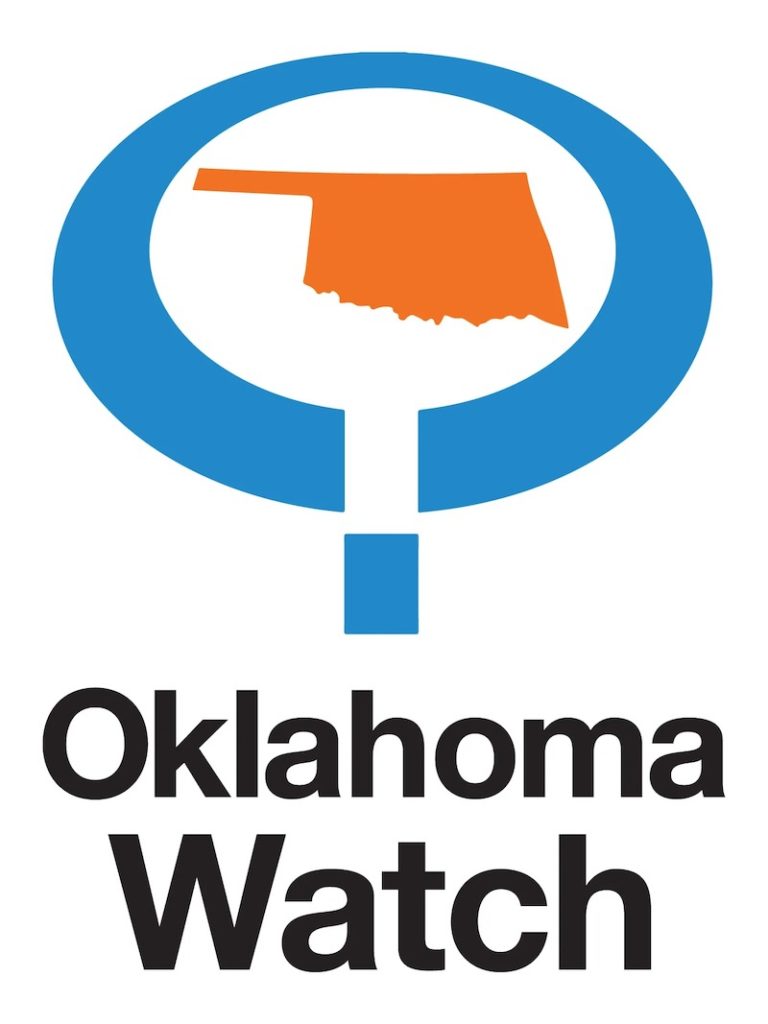OKLAHOMA CITY — A 2023 policy change is allowing the Oklahoma City Police Department to shield some police reports from public view.
In February, Oklahoma Watch filed a public records request with the Oklahoma City Police Department to gather information about a Yukon teacher confronted by vigilante predator-catchers at his home.
The interaction was livestreamed on social media. The video concluded as officers led the man out of his home and placed him in a police car. But he wasn’t arrested, and that’s where the Oklahoma City Police Department dug in.
The public information officer refused to provide police reports involving people who were not arrested or charged with a crime, even though incident reports have long been considered public records, regardless of arrest.
The department’s own policy manual makes it clear: “Arrest and crime incident reports may be reviewed by the news media, as long as such review is conducted during the time period reasonably contemporaneous with the arrest or incident,” the manual reads.
Oklahoma Watch filed a complaint with the Attorney General’s public access counselor, Anthony Sykes.

The Legislature addressed the issue in 2009 when it removed the word “arrest,” added four years earlier, from a section of the state’s open records law guaranteeing public access to incident reports. Lawmakers were inspired to fix the law after police refused to release information about an incident with a drunk public official who swiped a bull rider’s guitar; no one had been arrested.
Then, a legislator, it was Sykes who signed the 2009 bill as the presiding officer of the Senate. It passed unanimously. In 2012, Scott Pruitt, then the attorney general, wrote an advisory letter clarifying that incident reports were public records regardless of whether an arrest was made.
Yet, in this case, Sykes sided with the police, slamming shut access to information about routine police work in a decision that could spread to other law enforcement agencies. Public access counselor decisions aren’t binding, and this week, Oklahoma Watch notified the city that it intends to file a lawsuit.
The purpose of the Open Records Act is “to ensure and facilitate the public’s right of access to and review of government records so they may efficiently and intelligently exercise their inherent political power.”
Public interest isn’t limited to incidents that result in arrest or charges. When troopers found Gov. Kevin Stitt’s underage son intoxicated with a box of guns, the public was informed through an incident report. When investigators determined an obscure Jackie Chan movie was the source of nude images on a television in Ryan Walters’ education department office, again, the public was informed through a police report.
An Oklahoma Watch investigation into the death of Ernest Antwine relied on a sheriff’s department incident report. Antwine suffered from schizophrenia and drug addiction. In 2021, police took him from his mother’s house and dropped him off in a sparsely populated area on the side of the road, where he was struck by a pickup truck and killed.
None of those examples involved an arrest or charges.
Of all the branches of government, law enforcement should be the most transparent, said Dave Cuillier, who has studied access to public records for 20 years and is the director of the Joseph L. Brechner Freedom of Information Project at the University of Florida.
“What other department in the city can detain you on the sidewalk?” Cuillier said. “And take away your children? Can you make you pay money? Can throw you in a cell? And can even have you killed, either on the street or later after a trial? Parks department? No, they can’t. The sewer department doesn’t have any of that power.”

Transparency promotes better relationships with communities, and the converse is true, too — withholding information trends to further strain those relationships, said Cameron McEllhiney, executive director of the National Association for Civilian Oversight of Law Enforcement, a nonprofit organization that advocates for transparency, accountability and responsibility.
“By withholding information like that, they do themselves no favors,” she said.
Openness is one of the Oklahoma City Police Department’s driving values, according to its operations manual, which reads: “Law enforcement operations in a free society must not be shrouded in secrecy. It is necessary that there be full public disclosure of policies and openness in matters of public interest.”
Yet, on this issue, the city relied on an Oklahoma City municipal counselor’s definition of the word “list.”
In addition to information on arrests, the Oklahoma Open Records Act requires law enforcement agencies to make public, if kept: “a chronological list of all incidents, including initial offense report information showing the offense, date, time, general location, officer, and a brief summary of what occurred.”
The police department, in its response to the public access counselor’s inquiry, claimed it doesn’t keep a list of all incidents.
“Their conceptualization of the word ‘list’ is bonkers,” Cuillier said. “They’re thinking of Santa Claus writing down all the good boys and girls on parchment.”
Any database of reports is a chronological list, he said.
The city’s attorneys said an interactive community crime map posted online is sufficient to fulfill their obligation of a list of incidents. The map shows crimes reported by date and general location. But it doesn’t include other data points required under the law, such as a brief summary or the officer’s name, vital information to the public.

The community crime map is produced by LexisNexis and users agree to its terms of use, which prohibit modifying or reproducing the data.
The police also claimed a citizen’s right to determine if a public law enforcement agency is conducting itself properly is limited to arrests and incarceration, and that by withholding these reports they are protecting the privacy of victims, witnesses, reporting parties, mental health consumers and suspects who aren’t arrested “by keeping their names and stories out of public view.”
Oklahoma City Police Chief Ron Bacy, through a public information officer, declined to answer questions about the policy.
“The policy has been in place for years, so there isn’t anything new to discuss,” police department spokeswoman Capt. Valerie Littlejohn said.

A Nov. 28, 2023, revision to the department’s policy manual appears to have added a statement claiming that the Open Records Act does not define incident reports as open records.
The Oklahoma Association of Chiefs of Police neither agrees nor disagrees with the Oklahoma City police department’s legal interpretation of the open records law and defers to the public access counselor, President Todd Gibson said.
“Police departments should comply with the Open Records Act,” he said.
The Legislature this year approved the creation of the public access counselor to safeguard the public’s right to transparency and openness in government, overriding the governor’s veto to get it passed.
While Sykes’ decision is specific to the report Oklahoma Watch requested, it accepts the police department’s argument that they don’t have a list of incidents and that incident reports aren’t public records.
“It’s ridiculous,” said Mark Thomas, executive vice president of the Oklahoma Press Association, which advocated for the public access counselor bill for years. “I’m not sure the public supports a secret police.”

Republished in partnership with Oklahoma Watch under a Creative Commons license. Free Press publishes this report as a collaborative effort to provide the best coverage of state issues that affect our readers.
Jennifer Palmer has been a reporter with Oklahoma Watch since 2016 and covers education. Contact her at (405) 761-0093 or jpalmer@oklahomawatch.org. Follow her on Twitter @jpalmerOKC











